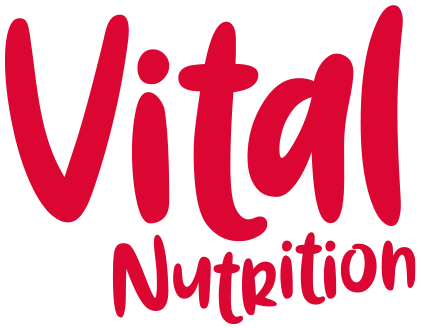Refresh your diet
I don't know about you, but September feels like a great time for a fresh start. After the long days of summer, it can feel good to get back into a routine at this time of year.
If you are ready to clear out the cupboards and give your diet a bit of a refresh, then I have some ideas for you to help get things off to a good start.
Here are 5 top tips to get you started:
1. Keep your mealtimes regular
If you have been a bit out of your regular routine with holiday and high days over the summer, now is the time to get back on track. It is a good idea to eat breakfast, lunch and dinner at the same time each day so you create a regular routine and are less likely to feel ‘hangry’ between meals.
Ideally there should be enough on your plate at each of your main meals to keep you going four or five hours without needing to snack.
2. Pack in the protein
If you find yourself reaching for a nibble between meals, try increasing your protein portion. Protein helps to keep us feeling full for longer and helps to maintain a balanced blood sugar, so may reduce cravings too.
Good sources of protein can either be animal-based proteins like eggs, meat, fish, chicken, natural yoghurt or cheese (cottage cheese has the highest protein content); or plant-based proteins like beans, lentils, nuts, seeds, houmous.
It has been shown that a protein intake of somewhere around 25g protein at each meal may help sustain energy and reduce cravings between meals. While you could get this from a scoop of protein powder, you do not need to add a supplement to your diet to get this level (and please beware of highly processed protein bars - otherwise known as junk food - read the labels and you’ll see what I mean).
An average portion of meat or fish, a 3 egg omelette with cheese or a cup of lentils will do the trick.
3. Skip the snacks
By increasing your protein, you are more likely to feel more satisfied and less hungry between meals, so it will make this step easier.
Most of us do better with 3 meals a day, rather than grazing through the day. Snacks tend to be higher in sugar, salt or fat, so cutting back may also help with weight loss.
Just make sure you adapt what’s on your plate at breakfast, lunch and dinner so your blood sugar levels are not taking a dip between meals. This may mean more protein, or simply more food on your plate.
4. Pile your plate with colour
This is the best time of year to celebrate local, seasonal produce, so make the most of it. The more colourful vegetables and fruit you can pack onto your plate, the better for your health and wellbeing.
Eat more green leafy veggies like watercress, rocket or salad greens (there is still time to get some planted for fresh, homegrown salad in the coming weeks)., Aim to have at least one brassica vegetable every day - that’s anything from the cabbage family, like broccoli, cabbage, kale, cauliflower, pak choi. Eat one portion of an orange coloured veggies everyday - rich in beta-carotene that is important for the respiratory tract and our immune systems - perfect coming into autumn. Sweet potatoes, butternut squash, orange peppers - or even a raw carrot every day will do the trick.
Could you add one extra portion of vegetable stop your daily diet? I bet you could! Aim for 7, not 5 portions of fruit and veg a day, and remember that one portion is the size of your fist.
5. Try something new
It is a new season, so it is time some new recipe ideas.
If you are bored of the same foods and recipes that you always make, have a look online, browse your cookbooks or visit your local library for free online magazines for culinary inspiration and add a little spice and zing to your weekday menus.

